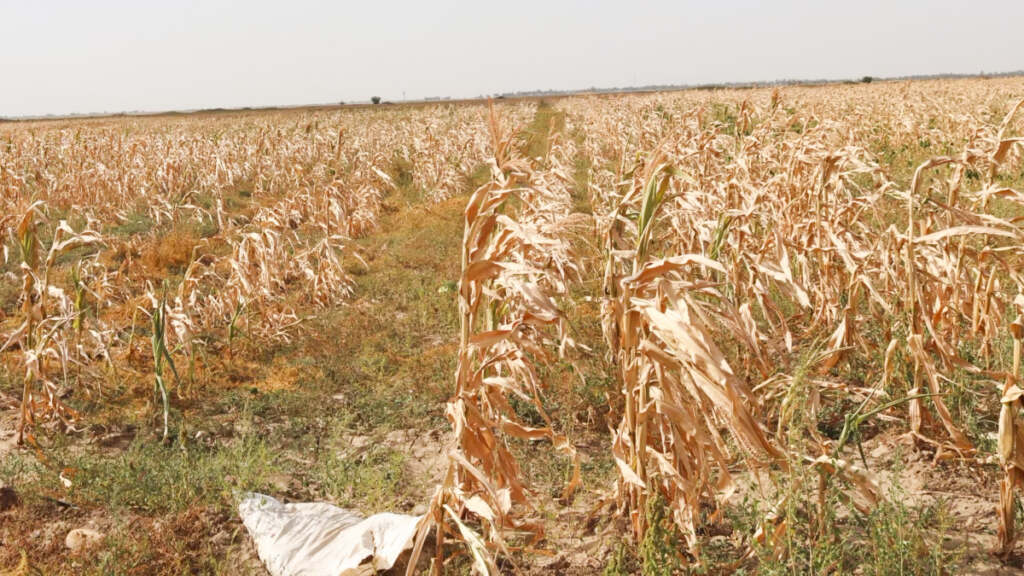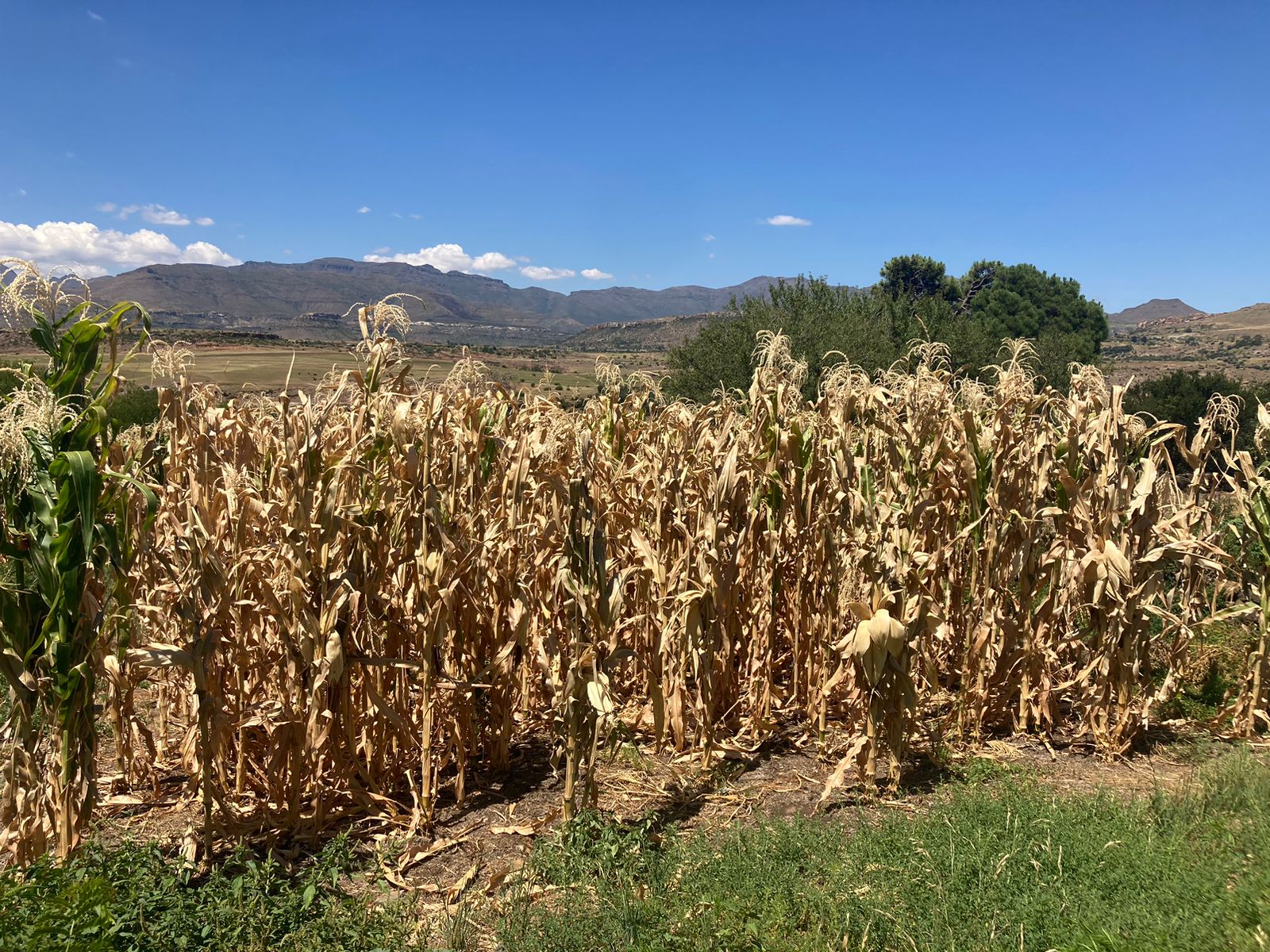…as severe drought threatens over 30 million across Southern Africa
Ntsoaki Motaung
More than 30 million people across Southern Africa have been affected by a severe drought.
Millions could be pushed into acute hunger unless support is urgently mobilised to scale before the next lean season, the United Nations (UN) and partners have warned.
The joint call was made on Wednesday by the UN, NGOs, regional and national authorities, and humanitarian and development partners during a briefing on the emergency in Southern Africa, held in Pretoria, South Africa, to highlight the severe impacts of El Niño and the climate-driven crisis.
This joint call follows the recent extraordinary summit by the Southern African Development Community (SADC) that saw the launch of a regional appeal in May seeking $5.5 billion to provide urgent lifesaving assistance, to help with recovery and long-term climate resilience.
“Rural communities we have met on the ground tell us they have never seen anything like this. They are extremely worried about their future,” said Reena Ghelani, the UN Climate Crisis Coordinator for the El Niño / La Niña Response. She added that: “Urgent support is needed now, and at scale, to protect lives and livelihoods.”
The unfolding impact of this El Niño phenomenon, which started globally in July 2023, has led to a severe rainfall deficit across the Southern African region, with temperatures five degrees above average.
The region experienced its driest February in 100 years, receiving 20 percent of the usual rainfall expected for this period.
“We thought we had finally rebuilt our lives after the devastation of Cyclone Freddy, but then the floods brought on by El Niño swept away everything we had worked so hard for,” said Roben, husband, and father to four from a World Vision operation area in Malawi.
“When the maize yields plummet, it’s like a punch to the gut. It feels like we’re constantly being pushed down, and it’s becoming harder and harder to find the strength to get back up. I can only manage to provide one meal a day. By June, we will completely run out of food.”
Rain shortfalls have taken place at a crucial time for crop growth. Widespread harvest failure and livestock death are already being felt across the region, where 70 percent of people depend on rain-fed agriculture to survive.
Angola, Malawi, Mozambique, Namibia, South Africa, and Zimbabwe are all grappling with the impact of the drought, while Namibia, Malawi, Zambia and Zimbabwe have declared states of emergency. The UN and partners are supporting national and regional response efforts.
“Assessments are underway to gauge the impact of the drought on agricultural production, and anticipatory actions have been triggered to provide immediate assistance to vulnerable communities. However, the magnitude of the challenge calls for additional resources to effectively respond to the crisis and safeguard lives and livelihoods. Support should focus on building the climate resilience of communities, otherwise, unless resilience and early recovery support are ensured, communities will not recover and farmers will not be able to plant during the next season, perpetuating humanitarian needs,” emphasized Patrice Talla, the Subregional Coordinator in Southern Africa for the Food and Agriculture Organization of the UN (FAO).
Meanwhile, the Lesotho Red Cross with assistance from the International Federation of Red Cross and Red Crescent Societies through their Disaster Response Emergency Fund (IFRC-DREF) has set aside CHF 711,203, which is equivalent to about 798,288 US Dollars and about M15,036,544 to assist 12,500 individuals (2,500 households) in four districts who have been impacted by food insecurity, water, sanitation, and hygiene (WASH) challenges, and disruptions to their livelihoods.
According to the Lesotho Red Cross, this support will be delivered through sustainable interventions, including access to clean water, crop production initiatives, and multipurpose cash transfers. The assistance program will span a duration of nine months, commencing in May 2024.
Summary
- The joint call was made on Wednesday by the UN, NGOs, regional and national authorities, and humanitarian and development partners during a briefing on the emergency in Southern Africa, held in Pretoria, South Africa, to highlight the severe impacts of El Niño and the climate-driven crisis.
- Support should focus on building the climate resilience of communities, otherwise, unless resilience and early recovery support are ensured, communities will not recover and farmers will not be able to plant during the next season, perpetuating humanitarian needs,” emphasized Patrice Talla, the Subregional Coordinator in Southern Africa for the Food and Agriculture Organization of the UN (FAO).
- Meanwhile, the Lesotho Red Cross with assistance from the International Federation of Red Cross and Red Crescent Societies through their Disaster Response Emergency Fund (IFRC-DREF) has set aside CHF 711,203, which is equivalent to about 798,288 US Dollars and about M15,036,544 to assist 12,500 individuals (2,500 households) in four districts who have been impacted by food insecurity, water, sanitation, and hygiene (WASH) challenges, and disruptions to their livelihoods.

Your Trusted Source for News and Insights in Lesotho!
At Newsday Media, we are passionate about delivering accurate, timely, and engaging news and multimedia content to our diverse audience. Founded with the vision of revolutionizing the media landscape in Lesotho, we have grown into a leading hybrid media company that blends traditional journalism with innovative digital platforms.








